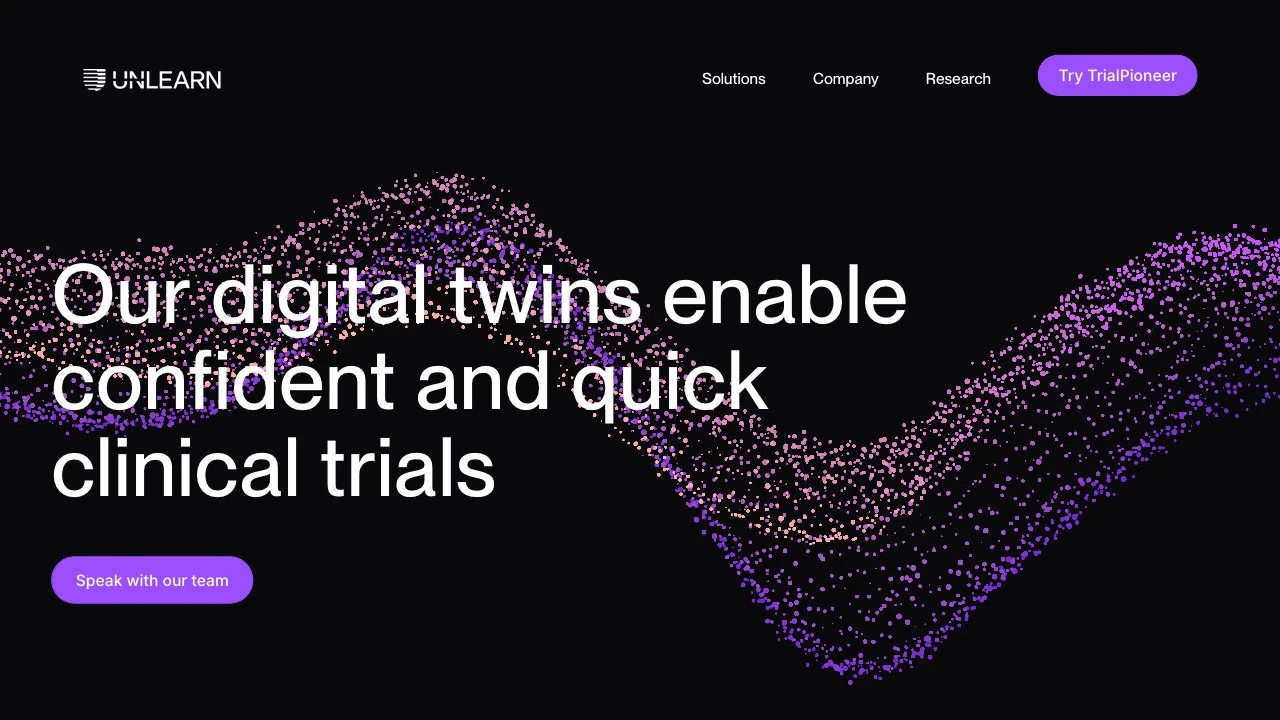Unlearn.ai is revolutionizing the field of clinical trials with its innovative approach using digital twins. These digital twins are a comprehensive forecast of a patient's future health, enabling more confident and efficient clinical trials. The company collects a participant's baseline data and runs it through an AI model trained on extensive historical patient-level data to create a digital twin. This technology has several significant benefits. It shortens the time to enrollment in late-stage studies, as TwinRCTs reach full enrollment sooner by requiring fewer patients to achieve the same power as traditional clinical trial designs. It also improves the ability to observe treatment effects in early-stage clinical trials by increasing power without adding more patients. Additionally, TwinRCTs give participants a greater chance of receiving the experimental treatment by using smaller control groups. Unlearn.ai works in various disease areas such as neuroscience, immunology, metabolic disease, and more. Its solutions are powered by artificial intelligence and are designed to engineer the future of medicine.

Unlearn.ai
Unlearn.ai's digital twins enhance clinical trials, offering quicker enrollment and better treatment observations.
